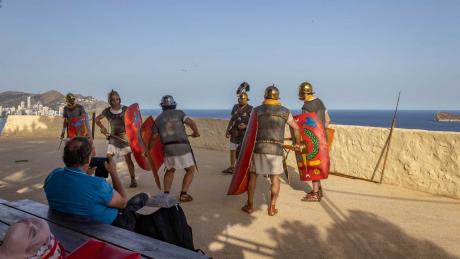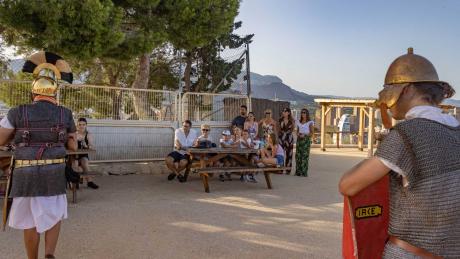The Hispania Romana Cultural Association recreates life in the barracks
This is how the Roman legionaries attacked and defended the 'Castellum' of Tossal de la Cala

The European Conference on Archeology has continued in the Roman 'Castellum' of Tossal de la Cala this afternoon with the historical recreation of what life was like for a legionnaire in a fortification like the one in Benidorm, by the Hispania Romana Cultural Association
With this initiative, the Department of Historical and Cultural Heritage directed by Ana Pellicer, wanted to vindicate "the value of the historical site by putting the way of life of the time in the context", said the councillor, after attending the representation that was carried out at the top of Tossal this afternoon, together with those responsible for Employment and Local Promotion, Mónica Gómez, and Education, Maite Moreno.
La Hispania Romana is a non-profit association and collaborates, in addition to La Cala site, with the Vilamuseu de la Vila Joiosa, or the Provincial Archaeological Museum of Alicante (MARQ) in the realization of the 'Lvcentum reviviscent, among others.
In today's recreation, attendees have been able to learn legionary fencing manoeuvres; what the 'castra' (singular castrum) was like, or military camp where the legions lived; or why the legionnaires received the nickname of 'Mario's mules', after the reform of the General of the Republic Cayo Mario, who forced them to carry all the belongings that exceeded 40 kg during the long days of marching and for them they had to help with a long wooden stick.



